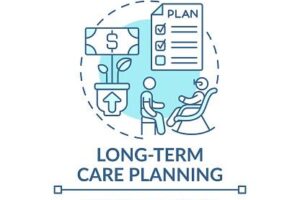Category Archives: Long Term Planning
Americans Hopeful For More Long Term Care Information And Support
A recent study completed by Nexus Insights shows that many older Americans have increasing questions about long term care and the best way to support themselves in the future. If you wind up with an illness or injury, your only option to treat it might be entering a nursing home or other long term… Read More »

How Many People Don’t Have the Resources to Support Themselves with Long-Term Care?
Long-term care expenses can be catastrophic for a single person or even for the other spouse of a married couple. Most people anticipate aging in place or relying on family and friends as caregivers. But extensive long-term care needs might require assisted living or a nursing home. A recent study indicates that 60% of… Read More »

What Are Coverable Long Term Care Events?
In order for a long term care event to be covered under your long term care insurance policy or Medicaid, your doctor must indicate that you are unable to perform at least two activities of daily living. You may see these referenced in paperwork as ADLs. The other circumstance that could qualify you to… Read More »

New Study Shows One Third of People Don’t Have What It Takes for Minimal Long Term Care
Who will foot the bill if you need a nursing home? That’s a question popping up for more and more families in America these days. Long term care insurance is extremely expensive and premiums have been on the rise in recent years. This doesn’t bode well for those people who are most likely to… Read More »

Is It Time to Find Long Term Care for a Loved One with Alzheimer’s?
You and your family might have already had the initial conversations around whether a loved one needs additional support beyond what you can provide. Sometimes you and a network of family members may be unable to provide the kind of support that a person with Alzheimer’s disease requires. This person might wander a lot,… Read More »

Are You Concerned About Long Term Care Costs?
Does your estate plan account for long-term care costs? If not, you could end up paying out of your own retirement savings to cover necessary expenses for your care or for a spouse’s. Studies have found that most people over age 65 will eventually need help with daily tasks of living, such as getting… Read More »

Have You Neglected Long Term Care Planning for Your Estate?
A recent Banker’s Life survey that included 1500 middle income Americans between the ages of 54 and 72 reveals that most baby boomers haven’t planned for long term care expenses. Around 10,000 people across the United States are turning 65 in the United States every single day, and of those, nearly 70% of people… Read More »
Clients Express Fears About Long Term Care Needs
Most people recognize that the rising costs of long term care will certainly impact their retirement planning abilities and their lives in older age. However, approaching long term care planning is notoriously difficult, especially when many clients are concerned or scared to discuss it to begin with. Many consumers simply need to come to… Read More »
Study Shows Patients Not Prepared for Long Term Care Costs
Are you assuming that you won’t need the support provided by long term care? That could be a significant mistake and one that could cost you and your loved ones for many years. A new study has shown that plenty of patients are not prepared for the out of pocket costs of long term… Read More »
Can’t Afford Long Term Care? Here Are Six Different Ways to Pay for It
You may be under the impression that you just can’t afford long term care and you are banking on your ability to remain healthy long into your older years. But, unfortunately, the average cost of long term care in 2015, for a 65-year-old, was $138,000. Approximately half of seniors will need some type of… Read More »
